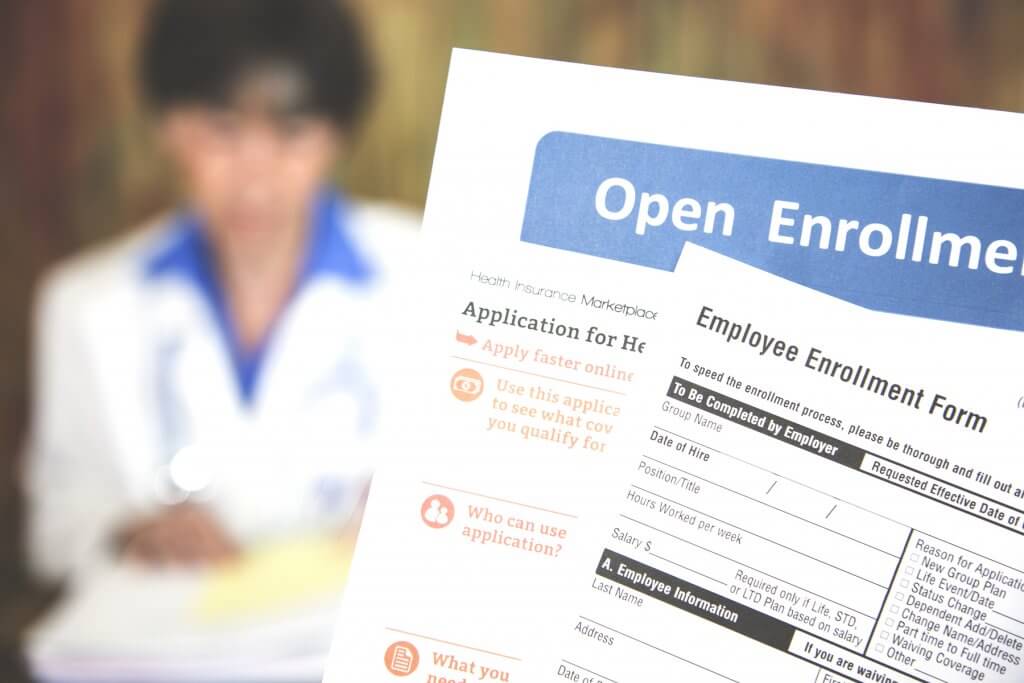Many Marylanders Taking Advantage of a Law They Thought They Hated

As a health insurance navigator in one of the reddest parts of Maryland, David Stewart is accustomed to skepticism about the Affordable Care Act, the federal health insurance program that conservative critics long ago dubbed Obamacare.
Although the ACA was signed into law a decade ago, confusion still reigns over what the measure does and who it is intended to benefit. And not just in Stewart’s territory — Allegany, Garrett and Washington counties — but basically everywhere, he says.
“One of the biggest issues, even this many years in, is that people don’t really understand how the Affordable Care Act works, how it’s implemented in Maryland, and what financial help is available to lower premium costs and out-of-pocket expenses,” Stewart said in an interview.
Stewart is not only a health care navigator –– someone who works directly with uninsured persons who may be eligible for free or low-cost coverage –– he is also the program director for the Area Health Education Center West, one of the state’s eight “connector entities.”
Normally Stewart and his team would not be meeting with consumers now, because open enrollment usually takes place in November and December.
But when fears of COVID-19 surfaced, the Maryland Health Benefits Exchange, the state’s ACA marketplace, decided to open a special enrollment period. Originally scheduled to end in mid-April, the sign-up period has been extended twice.
Now uninsured persons, including many who lost health coverage when their workplaces closed or lost business, have until June 15 to acquire coverage.
Doing one-on-one sit-downs is harder than it used to be, of course, because of social distancing mandates. Now navigators talk with consumers by phone.
What hasn’t changed, in far Western Maryland at least, is the skepticism surrounding the ACA.
“People think for some reason, based on an anecdote from a friend or a neighbor or something, that somehow it won’t work for them, or they won’t qualify, or there is an obstacle that they imagine that’s going to prevent them from getting affordable insurance,” Stewart said.
In fact, he said, more than eight in 10 people who come through the door end up with free or low cost health coverage.
Gradually, perhaps by word of mouth, attitudes are starting to change. “People are figuring it out,” Stewart said.
“I’m sure the overwhelming majority of the people that I serve voted for [President] Trump,” he added. “And every now and then I hear, ‘Is this Obamacare?’ And I’m like, ‘Yup. It is.’ I don’t know what people are thinking, but I do think I see some wheels turning. And I’ve had people tell me they wish they hadn’t been so suspicious.”
Lost jobs, lost health insurance
Many Marylanders are taking advantage of the special enrollment window to replace the coverage they have lost or will soon lose.
In March alone, 10,222 people enrolled for coverage through the Maryland Health Connection, the enrollment system, according to a report released Tuesday.
The largest category was adults 26-34, who made up nearly 24% of new enrollees. Children accounted for more than 19%. Adults between 35 and 44 years of age made up an additional 16%.
“We’re always talking about getting young, healthy people — people who don’t think they need health coverage — so we’re really seeing young folks coming in and saying, ‘I really have to get health insurance,’” said Michele Eberle, the executive director of the Health Benefits Exchange.
Montgomery and Prince George’s counties accounted for 39% of the new enrollees; Baltimore City and Baltimore County residents made up an additional 25%.
Seven in 10 qualified for Medicaid; three in 10 purchased coverage from one of the HBE’s private insurance partners — CareFirst and Kaiser Permanente.
A partnership with Maryland’s insurers
Eberle said the decision to extend the enrollment period was made in consultation with health experts who were monitoring the rate of the coronavirus infection.
“Because of the way the curve is going on this pandemic, we made the decision to continue the special enrollment period through June 15,” she said.
She said the partnership that the exchange has developed with the two private insurers made the new sign-up period possible.
“We’ve worked really hard at building our relationship with the carriers and always getting their input before moving forward,” Eberle said. “Everyone rallied around and supported the COVID [special enrollment period].”
Two other factors made the enrollment period possible: Elective surgeries have been put on hold, reducing expenses. And Maryland has a robust reinsurance program — a backstop for carriers in the state’s individual marketplace.
“That provides them a level of protection around their high-cost claims,” she said.
While many low-income people qualify for policies that have relatively small premiums, families that get stretched financially may decide to drop their health insurance in order to pay rent or buy food.
Eberle said her team will be monitoring drop-out numbers.
Retroactive insurance
Stewart, the health insurance navigator, said there is a remarkable benefit available for those who sign up by April 15 during Maryland’s special enrollment period.
For consumers who enroll by April 15 , their policies become effective on April 1, which means it can be applied to treatment they’ve already received. The same retroactive provision applies for consumers who sign up between May 1 and May 15.
“That’s unprecedented,” he said. “That’s like getting your car insurance after having an accident. That never happens in the insurance world.”
An estimated 14,000 people are eligible for free or low-cost coverage in Allegany, Garrett and Washington counties alone, Stewart said. He hopes the retroactive nature of the policies is something they think about.
‘Americans will die’ from Trump’s failure to act
People who live in neighboring states that don’t have their own health insurance exchange — Pennsylvania, West Virginia and Virginia — are ineligible to sign up for coverage now because President Trump declined to create a special national health care sign-up period in response to the pandemic.
Democrats and health insurers urged him to reopen healthcare.gov as a way of bolstering the safety net in a time of crisis, to no avail.
U.S. Sen. Chris Van Hollen (D-Md.) called the decision “reprehensible” and said it “will cost American lives.”
“The refusal of the Trump administration to establish a special enrollment period for the Affordable Care Act will result in more Americans dying,” he said. “There will be people who have the coronavirus who won’t go to the hospital because they’re afraid that they won’t be able to afford the bill.”
“This is Trump playing politics,” Van Hollen added, “and it’s despicable that he’s putting his opposition to ‘Obamacare’ above the lives of American citizens.”
The senator said Trump’s refusal to create a federal open enrollment could impact Maryland’s system.
“We are surrounded by states that are under the federal system, where residents have not had the benefit of a special enrollment period, and they could well end up in Maryland hospitals,” he charged.
Stewart said he frequently gets calls from Pennsylvania and West Virginia residents who hear his radio ads and see newspaper notices for Maryland’s special sign-up period. He has to turn them away.
Walter Smoloski, a spokesman for U.S. Rep. Andrew P. Harris, the only Republican in the state’s congressional delegation — and a physician — said “Dr. Harris doesn’t have a comment at this time, I’m sorry.”
Marylanders who wish to compare plans and sign up for coverage can go to: https://www.marylandhealthconnection.gov.
Never miss a story! Click here to get the top news delivered to your inbox every morning. Free.




 Creative Commons Attribution
Creative Commons Attribution